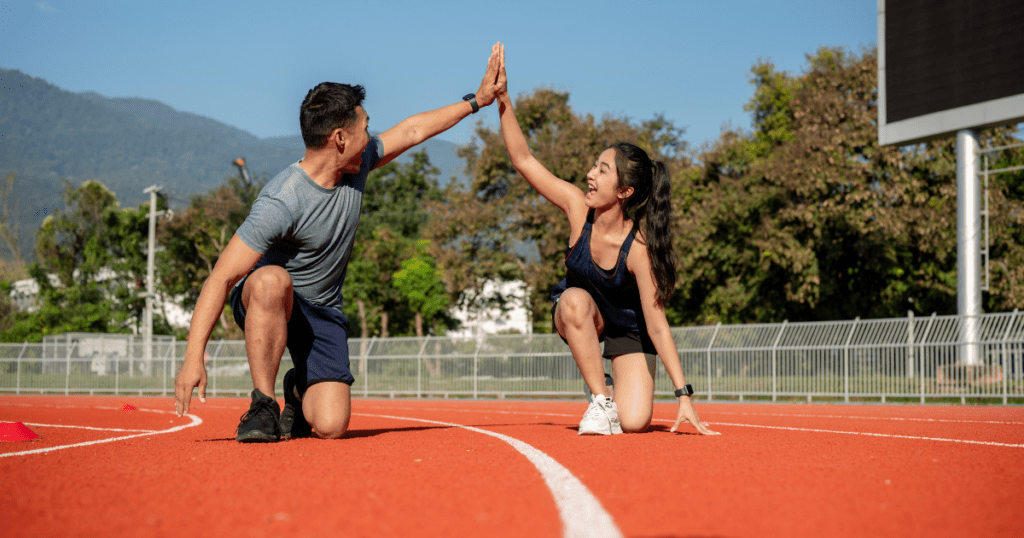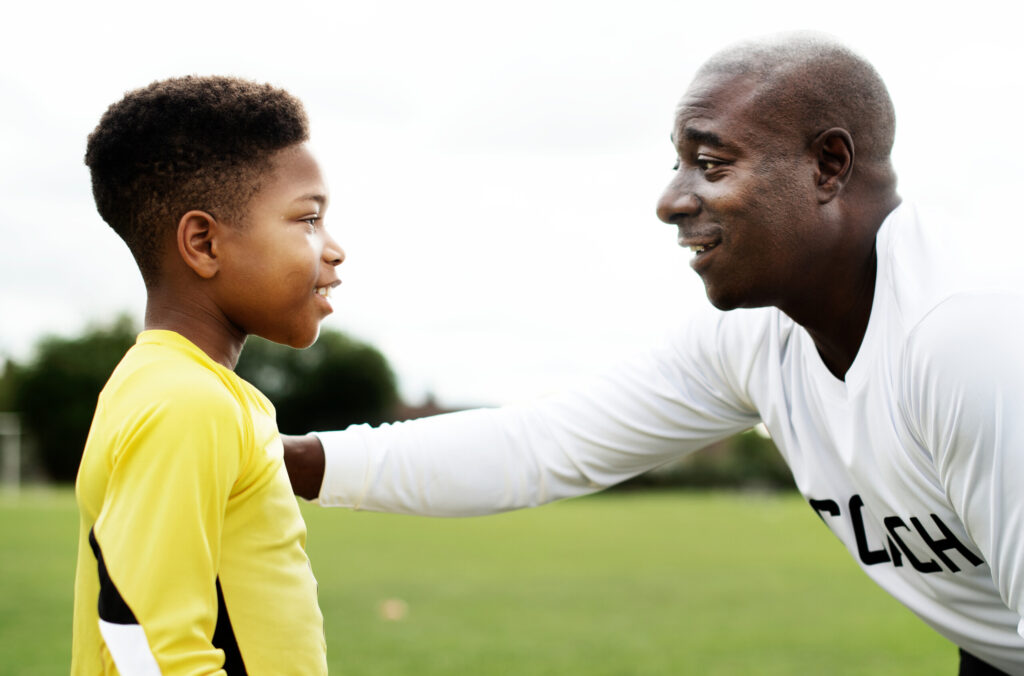Music for weightlifting
Training and lifting at gyms are a common part of athlete development, with many athletes listening to music for motivation. A study found that although preferred warm-up music does increase the volume of lifts and motivation, it does not speed up or change how the lifts feel.
Running towards Longevity: Insights from sub-four-minute milers

In the mid-20th century, breaking the four-minute mile was considered an insurmountable feat. Then came Roger Bannister in 1954, who shattered that barrier and changed the landscape of middle-distance running forever. But what if this extraordinary athletic achievement had effects that went beyond the track? This question sparked a study, Outrunning the grim reaper: Longevity…
Sport for mental health support
While sports are known for promoting physical health, their mental health benefits are often overlooked. This study examines ‘Tackling the Blues’, a school program based in the UK that uses sports and activities to address mental health among students. Findings reveal the program positively impacted students’ comprehension of relationships, emotions, and stress, showing its potential…
Mental fatigue and sport performance
Mental fatigue is common among many athletes due to the high cognitive demands of sport. Mental fatigue in athletes has been shown to significantly impair both endurance and technical abilities, such as passing and shooting accuracy.
Impact of circadian rhythms on sports performance
Biological rhythms are becoming a hot topic in sports science. The time of day has been shown to have a significant impact on athletic performance, with athletes often performing best in the late afternoon. This review looks at how our internal clocks affect performance and suggests that training schedules should match each athlete’s natural rhythms.
Mental health and performance in elite tennis players
Elite athletes often grapple with keeping their mental health in check while striving for peak performance. Digging into the experiences of Swedish elite tennis players and exploring how they manage this up and down balancing act of mental health and performance throughout their careers shows the importance of support from sports psychologists.
Children’s swimming education
Aquatic safety is important, especially for youth looking to play water-based sport. Children’s swimming education programs have demonstrated significant improvements in aquatic readiness and motor coordination through assessments conducted before and after sessions. Children who focused on basic skills development exhibit enhanced aquatic competence, underscoring the value of personalized swimming instruction.
Motivating players though the pre-game talk
In team sports, the pre-game talk is a pivotal moment intended to motivate players before they step onto the pitch. According to recent research, coaches who balance game strategy with messages that support athletes’ autonomy (for example, facilitating athlete choice or opinions) and competence (for example, praising past performance) can enhance player motivation.
The evolving role of coaches in athlete mental health

A coach’s influence In recent years, the mental health of athletes has garnered significant attention, both on and off the global stage. With young athletes and parents talking more openly about mental health, coaches are now finding themselves at the forefront of this discussion by being held responsible for recognizing and addressing mental health issues…
Putting mental health and performance at the heart of athlete development

Many different factors need to be considered to provide optimal development experiences for athletes. The supports and skills needed to promote lifelong sport engagement and the potential to achieve high performance go beyond the physical and sport-specific. In fact, the knowledge, attitudes, attributes and skills that promote athletes’ mental performance, mental health, relationship quality, and…